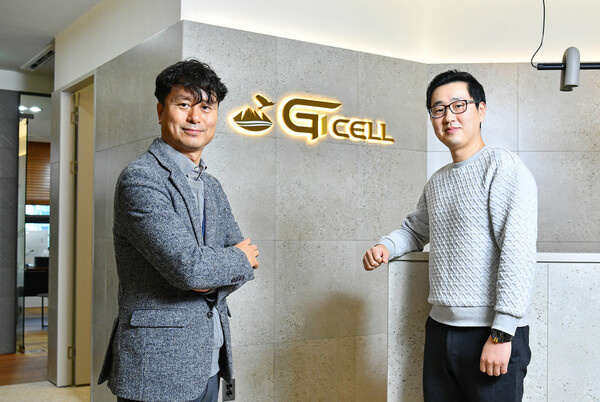GI Cell has won approval for phase 1 IND (investigational new drug) for allogeneic NK cell therapy. The company will also push for its combined administration with immunotherapy candidate substance of its affiliate, GI Innovation.

GI Cell said Monday that it has obtained approval for the phase 1 clinical trial of its allogeneic NK cell therapy, GIC-102 (T.O.P. NK), from the Ministry of Food and Drug Safety. Large medical institutions, including Korea University Anam Hospital, Seoul National University Hospital, and Asan Medical Center, will conduct the clinical trial beginning in the first half year.
In phase 1 clinical trial, GI Cell plans to confirm the safety, drug resistance, and pharmacokinetics/pharmacodynamics of GIC-1023 in patients with progressive solid cancers, recurrent/refractory non-Hodgkin lymphoma, and multiple myeloma.
According to GI Cell, GIC-102 is a next-generation NK cell therapy that maximizes tumor-targeting function and cancer cell-killing efficiency. Its mass culture with high purity is also possible using immune cell pure expander, GI Cell’s technology to mass-culture immune cells.
GI Cell has proved GIC-102’s efficacy in various solid cancers through non-clinical trials using a humanized mouse, particularly its consistent cancer-growth-suppressing efficacy in the mouse transplanted with various types of colorectal cancer cell lines.
In phase 1 clinical trial, GI Cell will evaluate not only the administration of GIC-102 alone but also its combined administration with GI Innovation’s double fusion protein, GI-101. GI-101, for which a phase 1/2 clinical trial is underway, is a fusion protein of CD80 that targets immune cells and IL-2v, an IL-2 variation that has overcome the disadvantages of IL-2.
“GI-101 proliferates and activates NK cells by uniquely binding to receptors expressed in NK cells and is expected to show superior synergy in various solid cancers, including colorectal cancer, through a combined therapy with T.O.P. NK,” said GI Innovation Chairman Chang Myeong-ho said. “NK cells activated by GI-101 induce the expression of chemokine receptors that help smooth infiltration into tumor cells.”
GI Cell CEO Hong Cheon-pyo said, “We have moved one step closer to our goal of providing a new treatment option for patients who do not respond to standard treatments. The combined therapy of T.O.P. NK and GI-101 has shown unparalleled durability and efficacy, so we will go all out to win approval as soon as possible by proving their efficacy in clinical trials.”
GI Cell said it has a GMP facility of 3,300 square meters to manufacture and supply clinical samples independently. Besides, the company has won permits to manufacture high-technology biopharmaceutical products and to manage human cells and aims to get permission for a cell disposal facility within the first half of this year.

